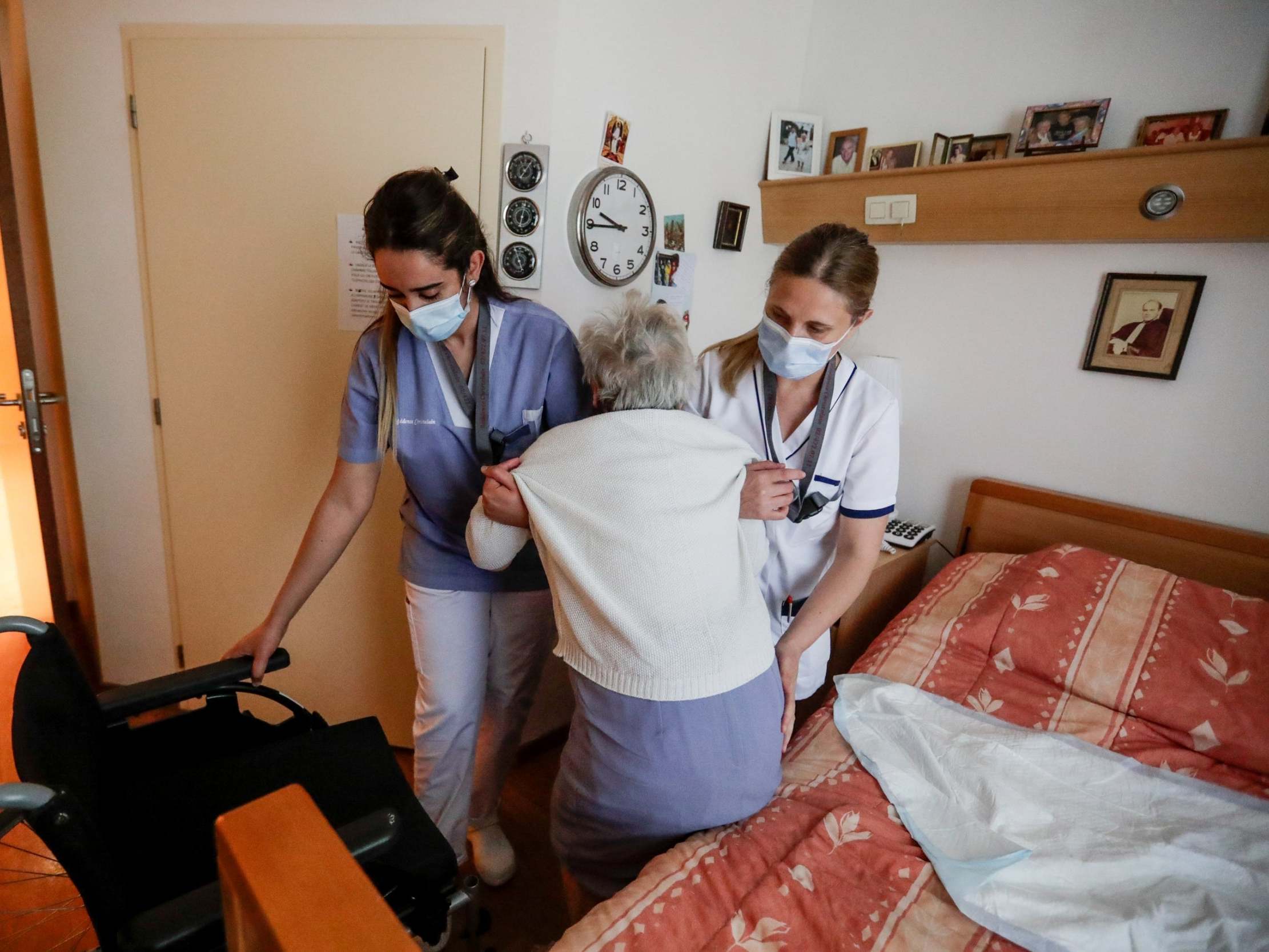The government needs to ensure care homes are not abandoned again
Editorial: The failure to protect people in nursing homes should spur urgent reform to integrate the care sector with the ‘core’ NHS

We do not need a public inquiry to know that the abandonment of many care homes was one of the worst mistakes made in responding to the coronavirus outbreak. As we report today, a survey of nurses and managers in the care sector has confirmed that nursing homes were put under pressure to accept patients from hospitals who had either tested positive for coronavirus or not been tested at all.
The survey, by the Queen’s Nursing Institute, also found that many homes struggled to get help for sick residents from hospitals, GPs and district nurses; and that hospitals and GPs imposed unlawful “do not resuscitate” orders on some residents.
Some of these failings arose from the best of motives at a time when decisions were being taken under pressure about a disease that was not well understood. The effort to discharge as many patients from hospitals as possible, for example, seemed to make sense to hospital managers when ministers were worried about the NHS being “overwhelmed” by cases. But it would seem that the policy continued long after some care homes simply refused to accept patients, and after they pointed out the dangers of spreading the virus to vulnerable residents.
The fundamental problem would seem to be the way in which care homes are regarded as a second-class ancillary service to the “core” NHS. This was belatedly recognised by Theresa May’s government, which added “and Social Care” to the name of the Department of Health. But new stationery does not change decades of attitudes, or indeed different funding streams. Most care homes are run by private companies, often on low profit margins, with a mixture of private and public funding, with the public money coming through local councils rather than the NHS.
So when the government urged the nation to rally to “protect the NHS”, the care sector was an afterthought, its separate status emphasised even when Matt Hancock, the health (and social care) secretary, promoted the green “Care” badge as the equivalent of the blue “NHS” one.
The survey also found that two thirds of care homes had adequate supplies of protective equipment, which might be better than some of the reporting suggested, but still implies the care sector, once again, was left behind the core NHS, which was prioritised.
The experience of Covid-19 has greatly strengthened the case for the care sector to become an integral part of the NHS. The image of an ambulance sent unbidden from a hospital to sit outside a care home that refused to admit a patient who was a possible risk to residents should shame the nation into thinking again about how social care is paid for and administered.
For too long, politicians have played politics with this issue – unfortunately with the connivance of public opinion that would rather not think about old age, dementia and end-of-life care. But the failings exposed by the pandemic must act as a spur finally to devise a fair system of paying for social care – as part of an integrated NHS.
Join our commenting forum
Join thought-provoking conversations, follow other Independent readers and see their replies
0Comments